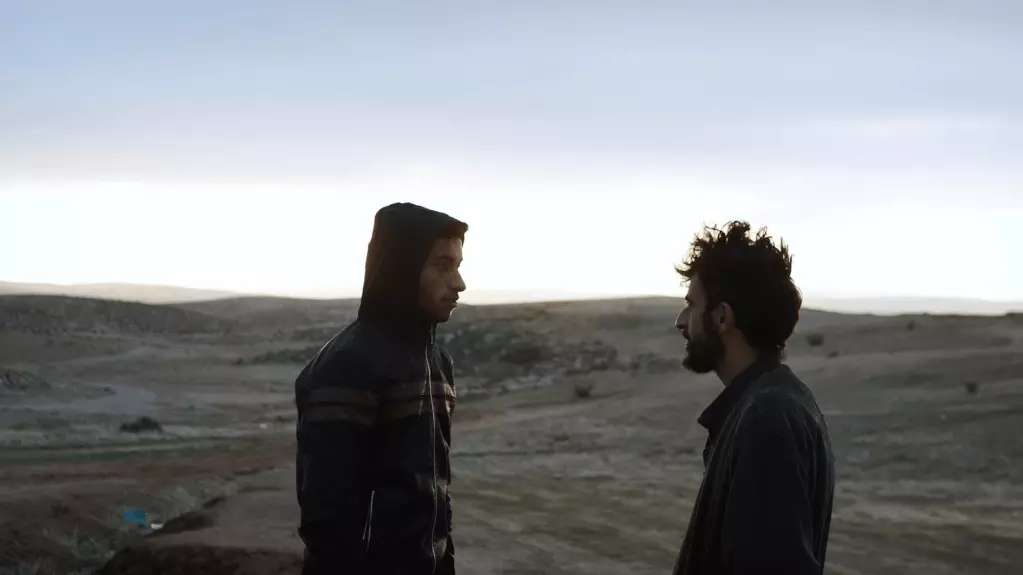The cinematic landscape is continuously evolving, marked by new narratives that invite audiences to engage with complex social issues. Among these, *No Other Land* stands out as a poignant documentary that has garnered significant acclaim and scrutiny. Primarily, it draws attention to the long-standing conflict between Israelis and Palestinians, focusing on the plight of the West Bank community of Masafer Yatta. This article will delve into the film’s themes, contextual significance, and the impact of current geopolitical situations on the stories being told.
*No Other Land*, which has achieved an impressive 100% approval rating on Rotten Tomatoes, documents the experiences of Palestinians living in Masafer Yatta, an area that has faced systematic displacement due to Israeli military policies. The film is the brainchild of a collaborative team of Palestinian and Israeli filmmakers who provide a unique vantage point on this sensitive subject. By blending their backgrounds and perspectives, they unveil the intricacies of a region fraught with historical animosities and contemporary struggles.
The documentary, through its lens, captures the dire realities faced by its subjects. Basel Adra, a resident of Masafer Yatta, serves as both a participant and documentarian, showcasing the daily challenges presented by home demolitions and protests. The personal narratives interwoven with broader political commentary lend authenticity and urgency to the film. It becomes a vessel for empathy, inviting viewers to confront the human cost of socio-political conflict.
The unique partnership between Palestinian journalist Basel Adra and Israeli journalist Yuval Abraham serves as a focal point of the documentary. Their different experiences—Adra’s constrained movements contrasted with Abraham’s relative freedom—illustrate the diverging realities faced by individuals on either side of the conflict. This relationship is not merely a narrative device; it symbolizes potential for mutual understanding and collaboration in resisting oppression.
The film’s ability to present both perspectives enriches its discourse, challenging the viewer to reconsider simplistic narratives around the conflict. It invites questions about identity, solidarity, and the capacity for hope amidst despair. The filmmakers underscore that the journey for resolution involves grappling with uncomfortable truths and recognizing shared humanity, a vital aspect often overshadowed in mainstream narratives.
The timing of *No Other Land’s* release is poignant, coinciding with the resurgence of hostilities between Israel and Hamas. This juxtaposition raises essential questions about timing in art and activism. Does the film stand as a cautionary tale of ongoing cycles of violence, or does it suggest pathways beyond conflict? As the documentary touches on themes of displacement and resistance, the current geopolitical climate lends it an urgency often characteristic of documentary storytelling.
Despite the film’s pre-war conception, it offers critical insights into the root causes of such enmities. The filmmakers intend for audiences to understand that these issues are not merely historical grievances but are actively shaping lives in the present. By situating the documentary within the context of current events, it emphasizes the continuous struggle of the displaced communities and their fight for dignity and recognition.
Alongside *No Other Land*, several notable films are making waves in independent cinema. For instance, *Love Me*, featuring Kristen Stewart and Steven Yeun, tackles profound themes of love and existence in a post-human context. The directors promise a unique exploration of identity and human connections through innovative filmmaking techniques, echoing the ever-present question of what it means to be “alive.”
Similarly, the documentary *This Woman* by Alan Zhang addresses personal narratives within broader societal issues, showcasing the struggles of a contemporary woman during the pandemic. Such films reflect an increasing trend in cinema to blend personal stories with wider social examinations, creating a dialogue that resonates with audiences in today’s context.
The intersection of personal experience and collective struggle remains a powerful theme in contemporary documentary filmmaking. *No Other Land*, with its roots in a specific geographical and cultural milieu, exemplifies the potential of film to foster understanding and empathy. As society grapples with polarization and conflict, documentaries serve as crucial platforms for dialogue, illuminating the multifaceted narratives that persist beneath the surface of mainstream discourse.
As the film landscape continues to diversify, it signals a need for audiences to engage critically with the stories being told. Documentaries are not only reflections of reality but also invitations for transformative conversations that challenge preconceptions and promote a deeper understanding of the world. In an era defined by complexity, films like *No Other Land* exemplify the crucial role of art in navigating the labyrinth of human experience.

